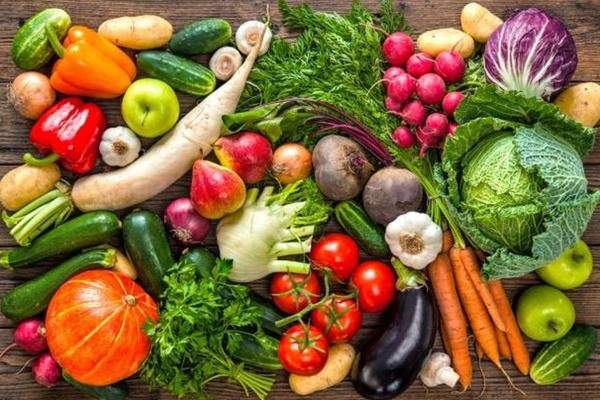Top technology taking delta’s fruit to next level
 |
| Top technology taking delta’s fruit to next level, illustration photo |
The project, created in conjunction with the Belgian government, Vietnam’s Ministry of Agriculture and Rural Development, Tra Vinh People’s Committee, and the local Department of Agriculture and Rural Development, is the initial step towards integrating the technology throughout diverse agricultural zones and farms in the Mekong Delta so that they can bring their fruits directly after harvesting into the cabin for cold preservation.
The 1,000-square-metre project, at a cost of more than $1.1 million, is being partially funded by the Belgian government. It is equipped with contemporary tech that helps farmers preserve the quality of goods from the point of harvest to the end-customer.
The project’s long-term objective is to construct a smart cold chain connecting the provinces of the Mekong Delta to the deep seaports of Cai Mep-Thi Vai and then through huge container ships to European ports like Antwerp and Rotterdam.
“This is the first in a chain of many smart cold cabins to come to various locations in the Mekong Delta,” said Duong Ngoc Tu, representative of ICE-LOFT. “It is a small step towards a bigger complete smart cold chain that ICE-LOFT and its partners are trying to develop that gather tropical fruits in all key production provinces of the Mekong Delta, especially along the important corridor of the Hau River, via inland waterways in reefer containers from the Mekong Delta to the Cai Mep-Thi Vai port complex so that a larger container ship could transport them directly to Europe.”
During the first six months of the demonstration, it will receive fruits from four farming collectives and an entrepreneur selected by the authorities of Tra Vinh and help them preserve their products prior to being collected by cold trucks to further locations.
Tra Vinh is one of the Mekong Delta provinces with a variety of tropical fruits that has a great potential for export and therefore is an ideal candidate for testing the feasibility of the technology.
Le Van Han, Chairman of Tra Vinh People’s Committee, said that Tra Vinh is a fertile land with numerous potentials for the production of many different fruit trees owing to the typical climate of the Mekong Delta region, and it already exports agri-products to over 60 markets worldwide.
“The location of Tra Vinh is downstream of the Hau River, playing a strategic role in transshipment of goods from the river to the sea. That’s why our province promotes high-tech agriculture as a spearhead for local economic development, making the most of resources for building infrastructure and technology, forming regions and projects on a large scale and producing high-quality agricultural items to meet market demand,” he said.
According to statistics, more than 75 per cent of the roughly $3.8 billion of Vietnam’s fruit export value goes to neighbouring countries such as China, which is often precarious.
“Moving to the European market means that the farmers can secure a more stable income and we should aim to take at least 50 per cent of the current export to China and bring it to Europe,” Tu of ICE-LOFT shared.
However, Europe and the United States have very strict requirements in terms of quality, and the trip for ships from Vietnam to Europe often takes a long time. Vietnam currently has limited and scattered infrastructure for cold preservation across key production regions such as the Mekong Delta, not sufficient to effectively keep the fruits fresh for a long sea transportation time.
However, thanks to the EU-Vietnam Free Trade Agreement (EVFTA), the gate for Vietnamese agricultural products, especially fresh fruits, has become widely opened with lots of new agreements and policies on import taxes. Meanwhile, the demand for tropical fruits in the European market is increasing on a daily basis.
“Tropical fruit is one of the key agricultural products of Vietnam, with the Mekong Delta region being the largest fruit basket in the country. The EVFTA also creates plenty of favourable conditions for fruit exports when 94 per cent of over 500 tax lines on vegetables and fruit and processed products are eliminated,” said Vu Thanh Liem, deputy director of Tra Vinh Department of Agriculture and Rural Development.
What the stars mean:
★ Poor ★ ★ Promising ★★★ Good ★★★★ Very good ★★★★★ Exceptional
Related Contents
Latest News
More News
- Hermes joins Long Thanh cargo terminal development (February 04, 2026 | 15:59)
- SCG enhances production and distribution in Vietnam (February 04, 2026 | 08:00)
- UNIVACCO strengthens Asia expansion with Vietnam facility (February 03, 2026 | 08:00)
- Cai Mep Ha Port project wins approval with $1.95bn investment (February 02, 2026 | 16:17)
- Repositioning Vietnam in Asia’s manufacturing race (February 02, 2026 | 16:00)
- Manufacturing growth remains solid in early 2026 (February 02, 2026 | 15:28)
- Navigating venture capital trends across the continent (February 02, 2026 | 14:00)
- Motivations to achieve high growth (February 02, 2026 | 11:00)
- Capacity and regulations among British areas of expertise in IFCs (February 02, 2026 | 09:09)
- Transition underway in German investment across Vietnam (February 02, 2026 | 08:00)

 Tag:
Tag:




















 Mobile Version
Mobile Version